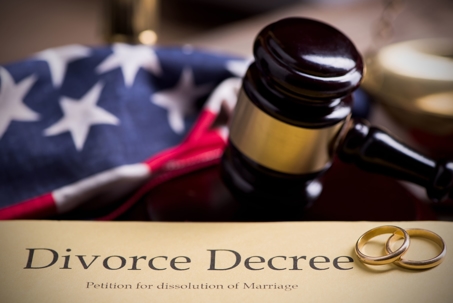If you are entering a military divorce, it is important to understand all the protections and legislation that governs such proceedings. One of these protective laws is the Servicemembers Civil Relief Act. This is commonly brought before a court in a divorce proceeding and can hinder the progression your action. Therefore, should be discussed with your divorce attorney.
The Service Members Civil Relief Act is a federal law adopted by the State of Florida through statute 250.5201. The law was enacted to provide military members the security of postponing certain legal actions while they are deployed or on active duty, in order for them to focus on their responsibility at hand and not be distracted by legal battles on the home front. The one unique difference between the federal statute and Florida’s is the expansion of coverage given to National Guard members who are called into active status by the governor. This protection is not provided for in the federal legislation.
Under SCRA, either party or the court, upon motion, may ask for this stay of proceedings. The court must grant the stay if “the ability to prosecute or defend the action is materially affected by … the active duty statue.” The stay is statutorily permitted for 90 days; however, extensions may be granted by the court in their own discretion and if good cause is shown. The stay does not dismiss the legal proceedings, instead, they are paused in order to provide the military member time to finish their active duty status and return to be present and participate in the proceedings. The final protection provided by SCRA is the inability of the court to enter a default against the military member on active duty, even if they have failed to timely respond to an action, as provided by state law.
Specifically related to family law, SCRA applies to all family law actions such as divorce or child custody and support. Therefore, if your spouse is a military member deployed on active duty, they will be able to claim the stay privilege under SCRA, which may postpone your action. If filing a divorce action and your spouse is military or active duty, you may need to file an approved family law form Affidavit of Military Service. The Affidavit is used when the military member has not been served, has been served and has failed to respond to the divorce petition, or you are wishing to enter a default against them. However, if the court sees the member is on active duty, no default will be entered and a stay will instead be granted for the 90-day period.
The Servicemembers Civil Relief Act can be of great aid to deployed military members but in return a significant hindrance to the progression of a court action. Therefore, if you are entering a divorce action with a deployed military spouse, ensure you understand this act and how it may affect the pendency of your divorce action. Discuss in detail the ramifications and boundaries of this law with respect to your specific case with your attorney.
Speaking to an attorney at our Pensacola office is free of charge, and we accept calls 24 hours a day, 7 days a week. Contact us at (800) 822-5170 or complete an online contact form to get in touch with a member of our team today.

